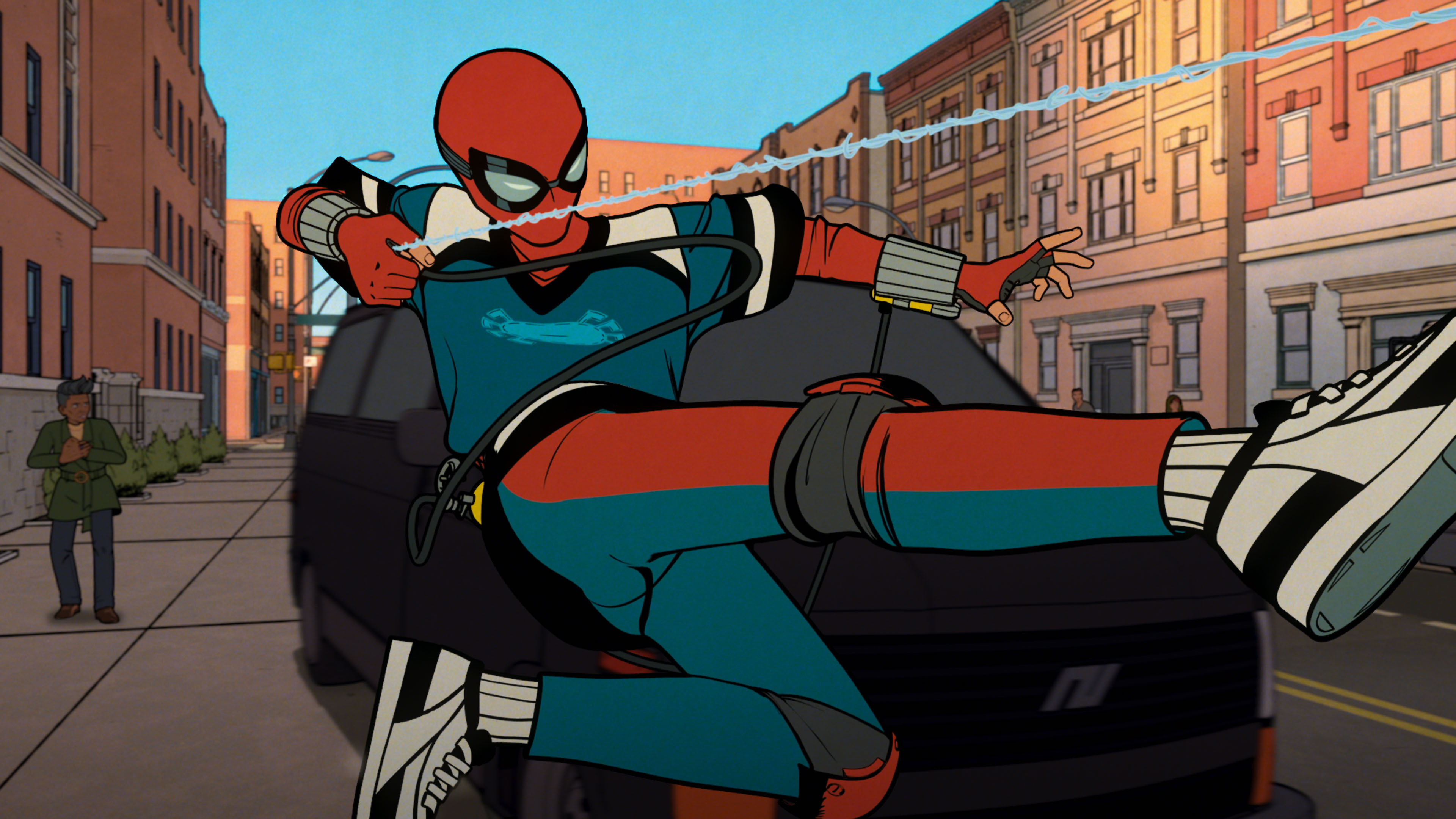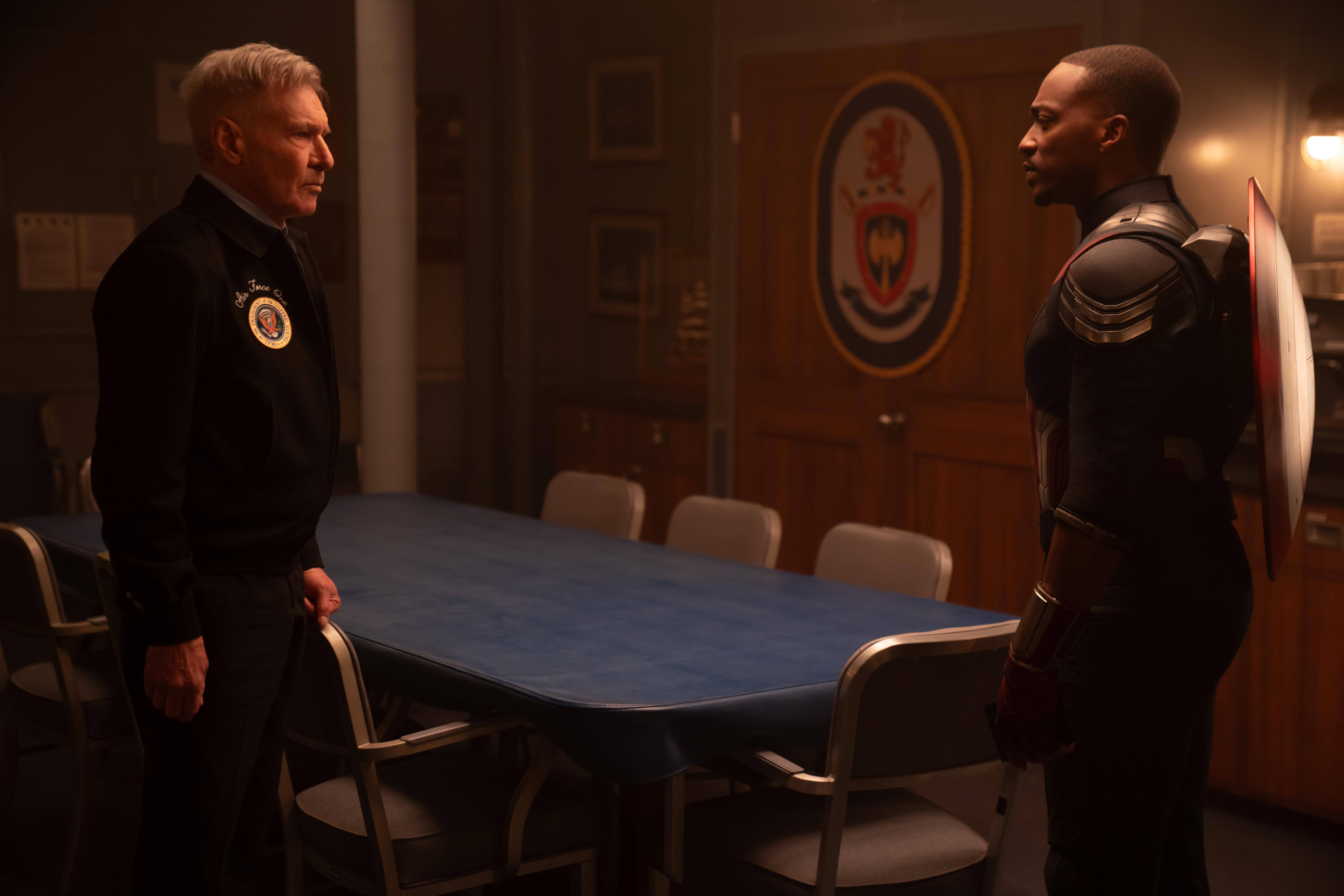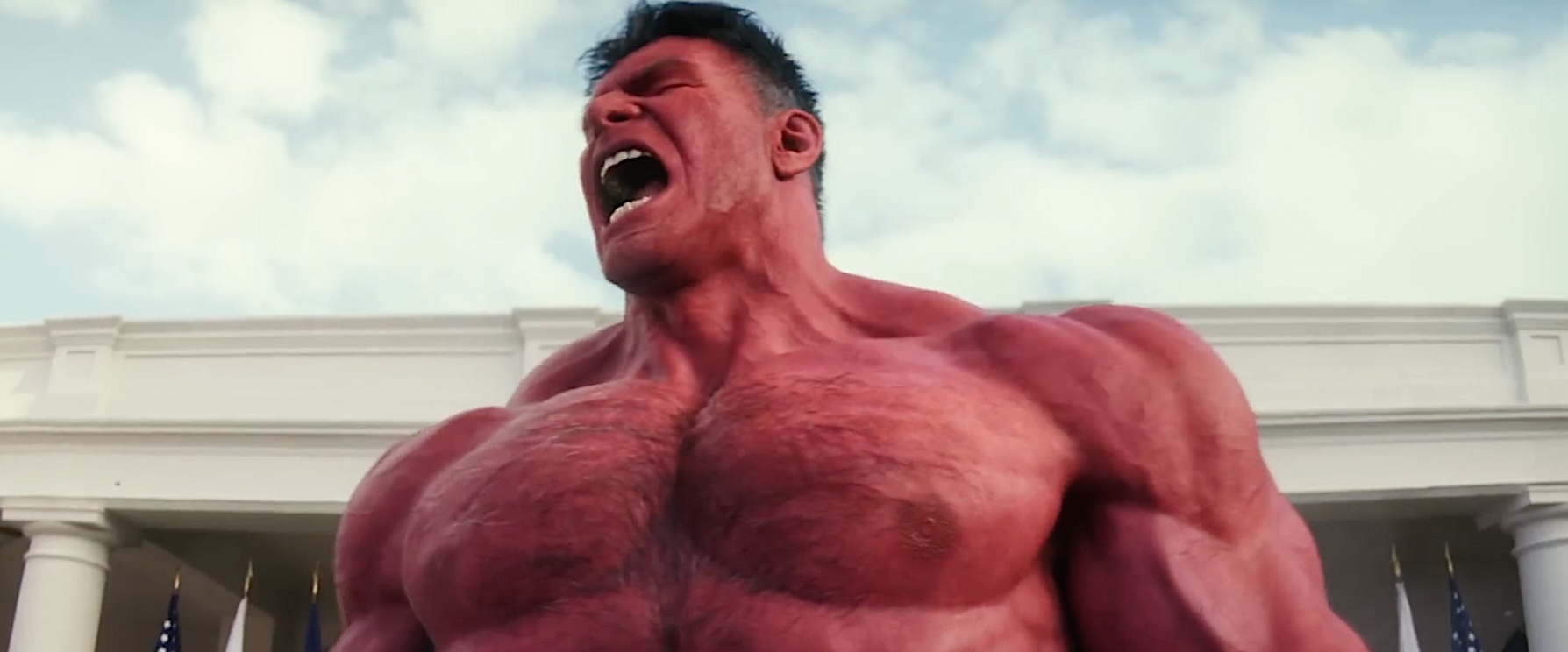As a voice-over artist, Christopher Sabat has stolen the show in animated movies and shows so many times, it’s easy to lose count. The prolific actor is the English voice behind anime characters like All Might in My Hero Academia, Colonel Armstrong in Fullmetal Alchemist, and Ayame Soma in Fruits Basket, among many other memorable roles. But his most popular scene-stealing performances might come from the Dragon Ball franchise and his roles as Vegeta and Piccolo.
Both are fan-favorite characters, but Piccolo has traditionally been a supporting character, while Vegeta has essentially become Dragon Ball’s second protagonist, along with hero Goku. The movie Dragon Ball Super: Super Hero changes that, letting Piccolo step up to star alongside his former pupil: Goku’s eldest son, Gohan.
Recently, Sabat spoke to Polygon about his career playing Piccolo and his role in Super Hero, and fandom’s relationship with one of the most memorable characters in anime.
This interview has been edited for clarity and concision.
:no_upscale()/cdn.vox-cdn.com/uploads/chorus_asset/file/24474047/Featured_Goku_Vs_Majin_Vegeta_Punch.jpg)
Polygon: Dragon Ball Super: Super Hero is a fun movie for fans like me who grew up with Dragon Ball, but haven’t really kept up. It really hearkens back to those early comedic Dragon Ball days, but you can also watch it as a stand-alone film.
Christopher Sabat: Yeah, you can. It has [Dragon Ball creator/Super Hero writer] Akira Toriyama’s spirit all over it. This is just a hypothesis that I gleaned from 25 years of working on this, but it does seem like, were Akira Toriyama to have his way, Dragon Ball would probably be mostly comedy, because that’s where it started, right? Dragon Ball started as mostly comedy and some combat. So whenever stuff is lively, fun, and quirky — that’s when I know Akira Toriyama really had a strong hand in it.
How do you think Dragon Ball has managed to keep the tricky balance where characters stay mostly the same, but grow from story to story?
The show’s evolved over the years, and it’s gotten more interesting. And luckily, Vegeta has evolved in a way that nobody ever would have anticipated. He’s actually become a really relatable character for a lot of people. As people get older, they realize, Well, I liked Goku because Goku always strives to be the best, but he has some weird motivations in other areas!
Whereas Vegeta, he has to struggle a lot more. Things don’t get handed to him as easily. In fact, I think it almost might be a joke for Akira Toriyama, to always troll Vegeta into thinking that he’s going to finally have something great, and then [he] doesn’t.
Piccolo can also feel more dynamic than Goku. It’s like that old line, “I’m not the stepfather, I’m the father that stepped up.”
Yeah. I tell people you can be the Piccolo to somebody, if you want to. Be the Piccolo!
It’s funny that both of these guys you play are unlikely father figures, but in this movie, Piccolo is kind of a frustrated one, like a tired Mr. Miyagi. Is that what you were trying to get across?
The thing I love about this film, though, is that yes, he’s tired — but it really shows that strong family bond that he has with Gohan. I love that. When Videl calls him at the beginning of the movie, she essentially says, ‘Hey, can you go pick up Pan? I’ll get you one of those stuffed animals you like!”
He’s like, “I don’t like stuffed animals!” or whatever. And they pan over and he’s got like, 30 of them. Which implies to me that they lean on Piccolo quite a bit to pick up Pan. He is part of their family, almost a nanny in some ways. And I just love that part of him.
Do you see your version of Piccolo as subtly different from the Japanese one?
It’s been interesting, because when we first started working on Dragon Ball, back in the late ’90s, we didn’t have a lot of good material, nor did we have the digital technology we have today. So we didn’t even have the correct Japanese version of Dragon Ball. In fact, I think they got the master recordings from Mexico. They were a licensed broadcast that already aired, so in Japan, they told us, “Just use theirs.”
So even when we did listen to the “original,” it was in Spanish. And so I never got much exposure as to what Piccolo really did sound like in Japanese. We had to guess on a lot of it. And it’s been over the years working on all the video games, and subsequently working on Dragon Ball Z Kai, and re-dubbing parts of the original series, that I really started to understand the characters more. Especially Vegeta. I had some real revelations about Goku. So over the years, my interpretation of these characters has changed quite a bit, based on the knowledge I’ve gotten about the show.
:no_upscale()/cdn.vox-cdn.com/uploads/chorus_asset/file/8890725/Piccolo_Mean_Muggin_.jpg)
Plus, when I was originally recording Dragon Ball Z, we hadn’t recorded [the previous series] Dragon Ball yet. So Piccolo was a very confusing character to me! Like, what is he, why are people scared of him, and what is going on? So it was nice to play him in a way that kind of pushed him up as a hero, pushed him up as a mentor — the main decision-maker, the main strategist for Dragon Ball Super: Super Hero.
Do you ever find yourself sliding from Vegeta’s voice into Piccolo’s?
I record one character at a time just to keep myself from that temptation too much. But there was a time when I was working on the original Dragon Ball Z, where I did meet a fan at a convention who came up to me and said, “Hey, your Piccolo and Vegeta voice are kind of sounding similar these days.”
And I listened, and gosh darn it, he was right. My voice was just so jacked up from recording so many hours that my voice was damaged a little bit, and it was sort of stuck in the middle. So I then made Vegeta’s voice a touch higher, and Piccolo’s voice a touch lower.
Speaking of conversations with fans, have you seen the fan reclamation of Piccolo as a Black character?
Yes, I have! That’s always actually been my theory on Piccolo. If I were ever casting Piccolo in a live-action movie, I would cast him as a Black character. There are just so many parallels there. He’s very connected with his race, and [Namekians] were done in by imperialism, stuff like that. There are a lot of people who believe that Piccolo’s a Black character, and I’m 100% on board with that, I’m way into that.
:no_upscale()/cdn.vox-cdn.com/uploads/chorus_asset/file/24795517/DBSSH_5.jpg)
And you see that because fans have looked to Dragon Ball a source of inspiration more than a story, right?
Yeah, there were not a lot of opportunities to add a lot of diversity in Dragon Ball. Back in the late ’90s, Dallas was just in its infancy in terms of the voice-over community. And so we didn’t have the money to afford anybody. We didn’t have the money to afford expensive actors or anything like that.
Dallas was just a market at that time where anybody really good would just leave. All the great POC actors would go, All right, I’m out of here. I’m going to New York! Because there just wasn’t a lot [of work] in Dallas back in those days. But it’s been nice especially in Dragon Ball Super to be able to introduce a mixture of people. In fact, I tried very hard on Super Hero to give some of those roles to POC voice actors like Aleks Le, who is Asian American, and Zeno Robinson, who is African American [playing antagonists Gamma 1 and Gamma 2.]. I thought they were a nice pair.
How would you say your understanding of Piccolo has changed from when you started?
I think a lot of Dragon Ball fans picked this up, but I didn’t realize how important Gohan was to Piccolo’s evolution. You could say that without Gohan, Piccolo might have actually gone the way of original Vegeta. He could have just been sinister. But Gohan sort of opened Piccolo’s heart up. Piccolo came from a being that just basically spit out all the evil in his body! He was never meant to be a good guy, necessarily.
Yeah, and Dragon Ball has always excelled at showing big character growth through action, especially when Gohan shows what he’s learned from Piccolo in Super Hero.
My heart still dropped even on a small screen when that happened in the movie. That’s got a couple of really key, really beautiful moments. They did some beautiful stuff with the sound design during that moment that you’re talking about, too. I don’t want to spoil it for anyone who hasn’t seen it yet, but there are about three great moments in the movie that make you cry, and that was probably the main one, right?
Dragon Ball Super: Super Hero is now streaming on Crunchyroll, and is available for rental or purchase on Amazon, Vudu, and other digital platforms.








